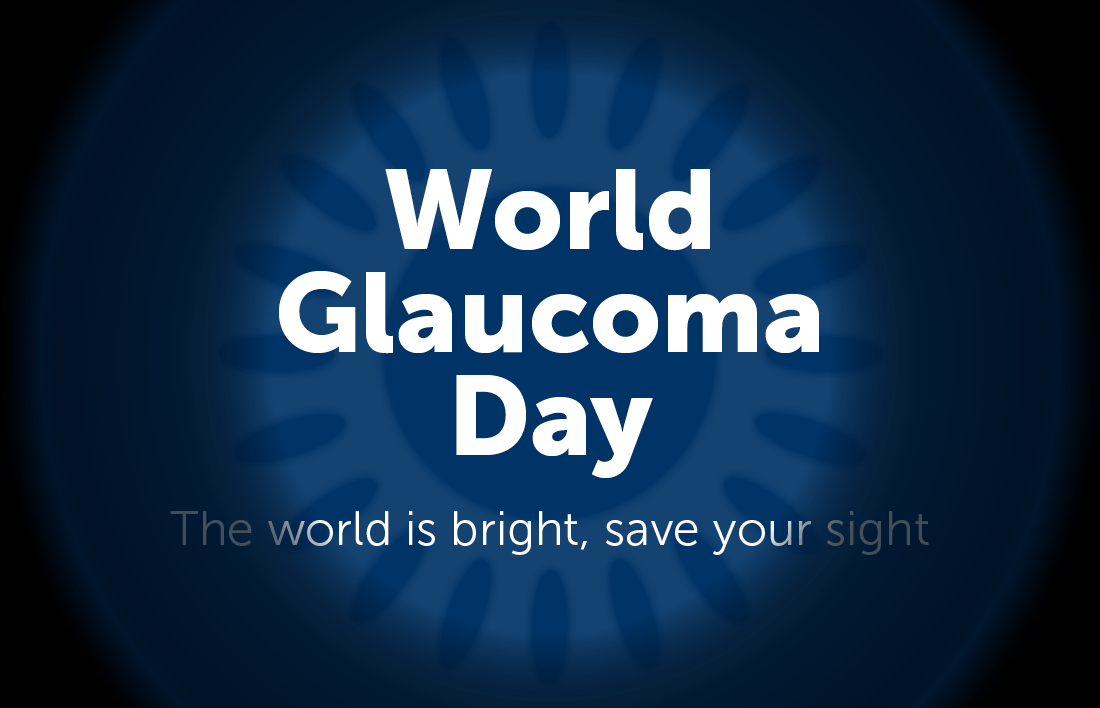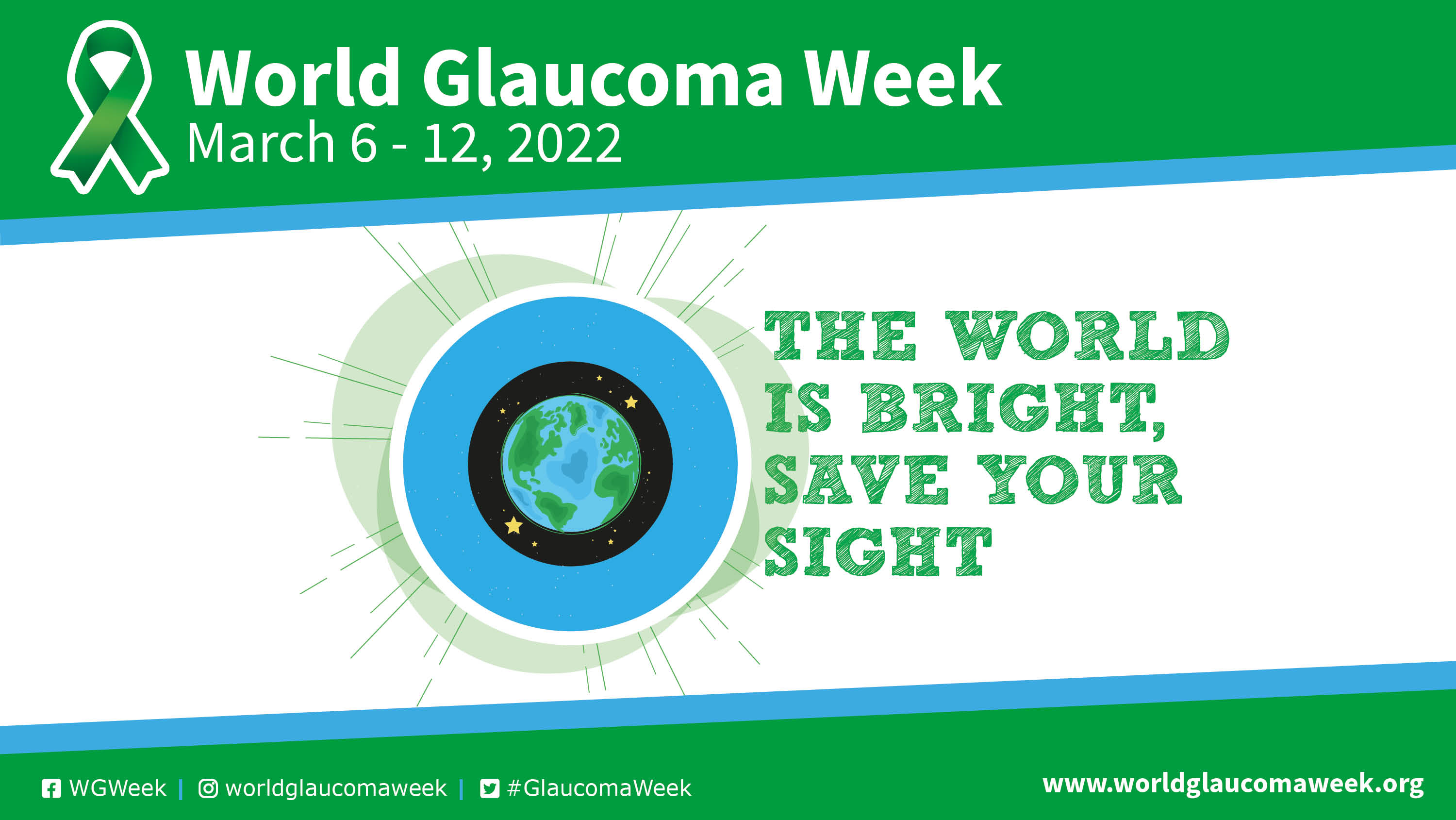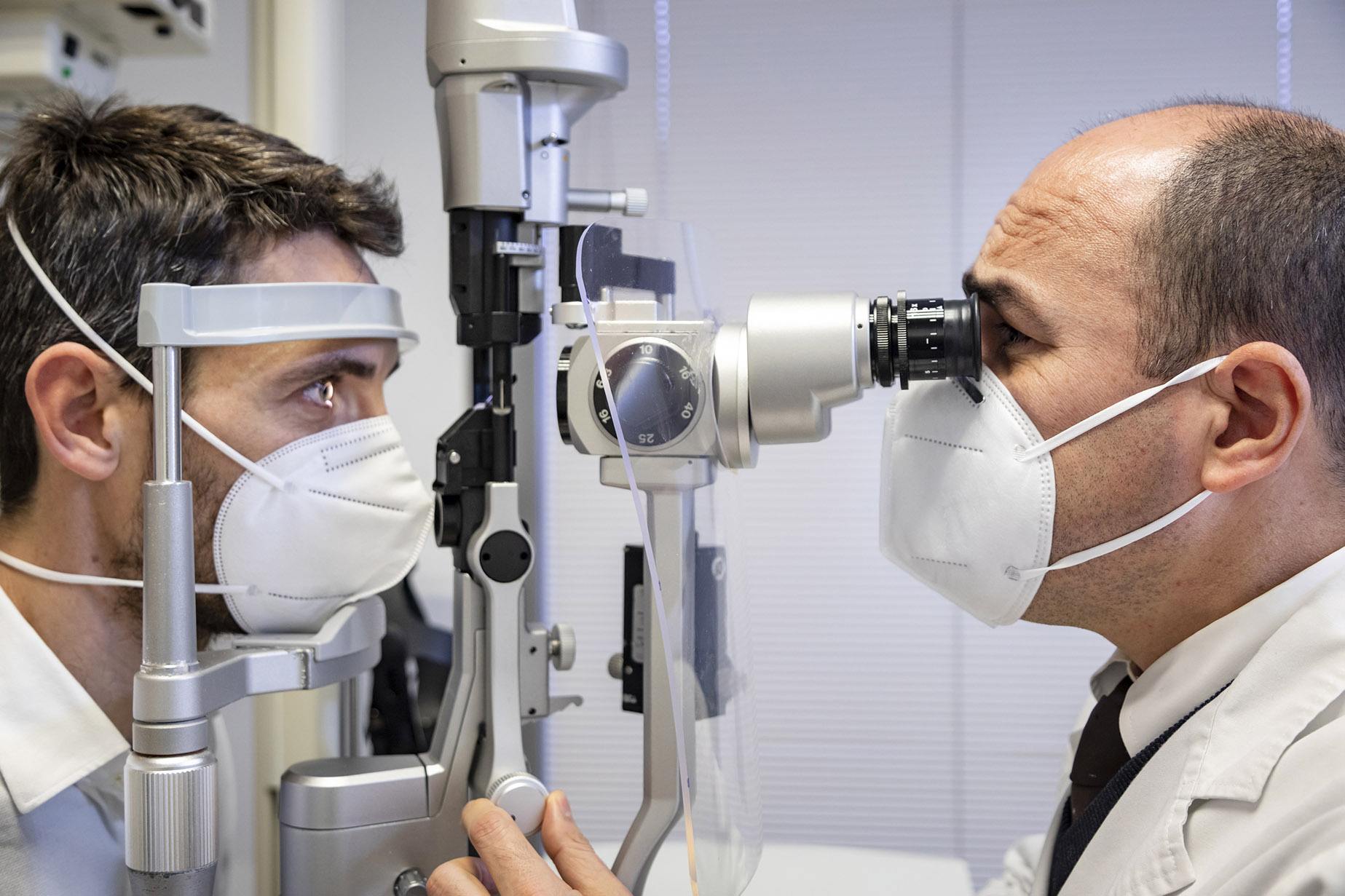
World Glaucoma Day is celebrated on March 12th and it marks the start of World Glaucoma Week, a collaborative project between World Glaucoma Association and World Glaucoma Patient Association . The aim of the project is to help eliminate blindness caused by this disease by raising awareness and alerting on the need of having regular eye check-ups in which the optic nerve is examined.
Under the motto The world is bright, save your sight, the project mobilizes several groups of people, including ophthalmologists, optometrists, healthcare workers, universities, medical centres, private practices and individual citizens, especially those suffering from the disease or their relatives, along with glaucoma societies and associations of patients affected by the disease. They also intend to mobilize the population on social networks through the hashtag #GlaucomaWeek.

Glaucoma is an eye disease. More specifically, it is a disease that affects the optic nerve initially causing a loss of peripheral vision (in the visual field) in patients If it is not detected early on and properly treated, it may progress towards a more serious vision loss and affect central vision.
Many of the glaucomas have a genetic basis and actually in most of them there is an elevation of the intraocular pressure that, together with other factors, causes damage to the optic nerve and provokes an early death of the nerve cells that compose it.
Doctor Alfonso Antón, head of the Glaucoma’s Department of ICR, explains through this interview why is so important an early detection of Glaucoma.
One of the main risk factors for glaucoma is high eye pressure. The disease incidence also increases with age. Therefore, it is more frequent among people older than 40, and especially among seniors over 60 years old.
People with direct relatives (father, mother, siblings) having suffered from glaucoma, as well as people with high myopia (over 6 diopters) or people with a medical history of eye traumas are also at a higher risk of having the disease.
The two most important types of glaucoma are the following:
Glaucoma can also be classified according to its origin: primary, if there is no specific cause except a genetic basis, or secondary, when it is due to another primary cause that generates it.

Glaucoma is the first cause of irreversible blindness worldwide. Moreover, for every case that is diagnosed and controlled, there is a person walking down the street who doesn’t know that he or she has glaucoma. It is estimated that approximately 50% of glaucoma cases are undiagnosed. While it is true that the disease is incurable, it is also true that 90% of the blindness caused by glaucoma could be prevented by early detection and treatment.
The most important thing to avoid vision loss is to have an ophthalmologic checkup frequently to identify the disease in early stages, especially in those people who are at higher risk of suffering from the disease, because most cases of glaucoma are not symptomatic, so it is very difficult for the patient to suspect that he/she has the disease if he/she does not have an ophthalmologic checkup.
Yes, glaucoma is a preventable cause of blindness. If diagnosed early, there are effective measures to prevent the consequences in most cases. These measures include medical treatment with hypotensive eye drops, laser application and surgical treatment. Prognosis and response to treatment are better the earlier the disease is diagnosed.
No, most cases of glaucoma are chronic and have no symptoms. An ophthalmologic examination is necessary to diagnose it in time.
Ophthalmologic checkups by our ophthalmologists include several simple and painless examinations, such as:
• Measurment of eye pressure
• Evaluation of the fundus. If the ophthalmologist considers it appropriate, other tests such as OCT or fundus photography can be performed. To perform these tests it may be necessary to dilate the pupil.
• Evaluación of the visual field. It is a fundamental test to diagnose glaucoma and to adjust the treatment to the needs of each patient.

Yes, it is possible to treat glaucoma with medicines, eye drops to reduce eye pressure, laser or surgery. Each case may require one or more of these treatments over time. It is very important that the patient strictly follows the doctor’s instructions for the treatment to be effective. None of them cures the disease definitively, but they can control it in most cases and prevent vision loss.

Contact us or request an appointment with our medical team.